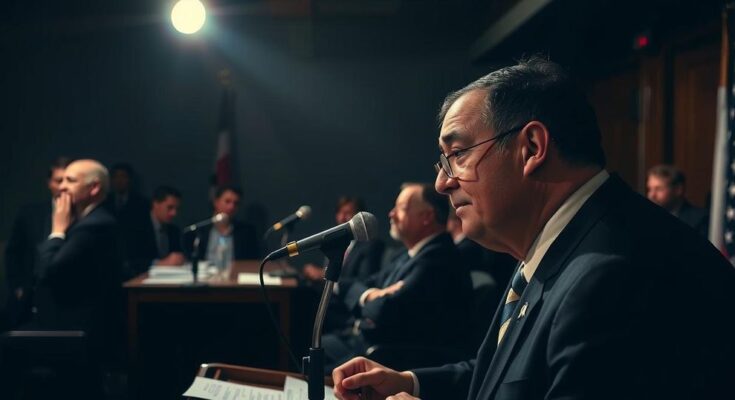Since the Democrats’ electoral loss, President Joe Biden has remained notably silent on the outcomes and future implications for American democracy. His only public comments were made shortly after the election and during a recent trip to South America. Analysts express concern over Biden’s lack of vocal engagement during this crucial time, suggesting it may harm his legacy as he approaches the end of his presidency.
Since the recent electoral defeat of the Democrats, President Joe Biden has maintained a striking silence regarding the implications of the results. After previously expressing that a Trump presidency would jeopardize American democracy, Biden has refrained from discussing the challenges that lie ahead or reflecting publicly on the Democrats’ comprehensive losses in the elections. His only statement occurred in a brief six-minute address shortly following the election, urging unity among Americans.
During a subsequent six-day trip to South America, Biden’s public remarks were minimal, raising questions about his administration’s direction during a critical juncture both domestically and internationally. Observers note that this silence creates a leadership vacuum, as the country appears to be moving forward without his vocal guidance. Prominent figures, such as David Axelrod, have suggested that a new generation of leaders must now emerge to forge the path ahead.
Historians, including Edward Frantz, have highlighted the historical context of Biden’s silence, likening it to that of former President Jimmy Carter, who faced similar irrelevancy upon leaving office. There are concerns that Biden risks leaving a diminished legacy if he does not actively engage with public discourse and narrative-setting during his remaining tenure as president. While Biden’s allies indicate that he is processing the election results privately, they acknowledge the importance of his public presence during these pivotal moments.
Biden’s aides emphasize the significance of adhering to electoral traditions in promoting the orderly transition of power, especially given the tumultuous events surrounding Trump’s past presidency. Despite his muted public presence, Biden is portrayed as adhering to the principles of democracy, albeit at the cost of immediate visibility. During his trip to South America, he missed opportunities for press engagements typical for presidents abroad. Notably, other world leaders have had to articulate key decisions regarding U.S. foreign policy, reflecting Biden’s current reticence. Overall, the ongoing silence from the President is indicative of a significant shift in the political landscape, as the ramifications of this electoral defeat unfold.
The article discusses the post-election silence of President Joe Biden following the Democrats’ defeat in the recent elections. This period of quiet reflects a notable absence of leadership during a critical time for both domestic and international issues. It emphasizes concerns among political analysts and historians regarding the implications of this silence for Biden’s influence and legacy as he approaches the latter part of his presidency, particularly in contrast with his vocally engaged predecessors.
In summary, President Biden’s silence following the Democrats’ recent electoral defeat has raised considerable concern among analysts and historians regarding his leadership and the potential ramifications for democracy in America. As Biden refrains from addressing the public or participating in typical press engagements, prominent figures underscore the necessity for a new generation of leaders to emerge and shape the future narrative. The prolonged quiet may risk diminishing Biden’s legacy and the relevance of his administration during this critical transition period.
Original Source: dailyjournal.net




